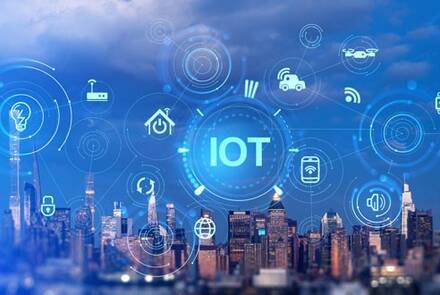Predictive Analytics in Smart Cities and IoT
Introduction
Imagine a city that can foresee traffic congestion, anticipate energy consumption, predict criminal activities, and optimize waste management—all in real time. This visionary concept is becoming a reality through the integration of predictive analytics into smart city and Internet of Things (IoT) projects. In this blog post, we'll explore how predictive analytics is transforming urban landscapes and creating more efficient, sustainable, and safer cities.
The Marriage of Smart Cities and Predictive Analytics
Smart cities, built on a foundation of interconnected IoT devices and sensors, have emerged as a response to the challenges of urbanization. They aim to enhance the quality of life for residents, improve sustainability, and optimize resource allocation. Predictive analytics plays a central role in achieving these goals:
- Traffic Management. In smart cities, traffic congestion is a persistent problem. Predictive analytics processes data from traffic cameras, sensors, and GPS devices to predict traffic conditions in real time. This enables dynamic traffic management, rerouting, and the synchronization of traffic signals to reduce congestion and improve commuter experiences.
- Energy Consumption. To address the growing energy demands of urban areas, predictive analytics can forecast energy consumption patterns. By analyzing historical data and real-time usage, cities can optimize energy generation, distribution, and storage. This not only reduces costs but also minimizes environmental impact.
- Crime Prevention. Predictive analytics aids law enforcement by analyzing historical crime data, weather conditions, social events, and other relevant factors. This data-driven approach allows authorities to allocate resources more effectively, anticipate criminal hotspots, and take proactive measures to prevent crime.
- Waste Management. Smart waste management systems employ sensors to monitor waste container fill levels. Predictive analytics can forecast when containers will be full, optimizing collection routes and reducing unnecessary trips. This minimizes fuel consumption and decreases urban congestion.
- Healthcare and Epidemic Control. During a public health crisis, predictive analytics can track the spread of diseases, anticipate outbreaks, and help healthcare authorities allocate resources and plan responses effectively. This can be instrumental in controlling epidemics and saving lives.
Challenges and Ethical Considerations
While predictive analytics holds immense potential for smart cities and IoT projects, it also comes with challenges and ethical considerations:
- Data Privacy: The extensive data collection required for predictive analytics raises concerns about privacy. Cities must establish robust data protection and security measures to safeguard citizens' information.
- Bias: Predictive models can inherit bias from historical data. Efforts must be made to eliminate bias and ensure fairness, especially in areas like predictive policing.
- Public Trust: Building public trust in the use of predictive analytics is vital. Transparency, open communication, and citizen involvement in decision-making processes can help achieve this.
Conclusion
Predictive analytics is the crystal ball of smart cities, enabling authorities to anticipate and respond to urban challenges efficiently. As IoT devices and sensors continue to proliferate, the potential applications of predictive analytics in city management are only limited by our imagination. However, it's essential to address privacy, bias, and trust issues to ensure that predictive analytics benefits all citizens and contributes to the creation of smarter, more sustainable, and safer cities. As technology continues to evolve, the future of smart cities is increasingly data-driven and predictive, (See also: The Role of Big Data in Smart Cities and IoT Implementations) making urban life better for all.
For more information about Trigyn's Big Data Analytics Services, Contact Us.






